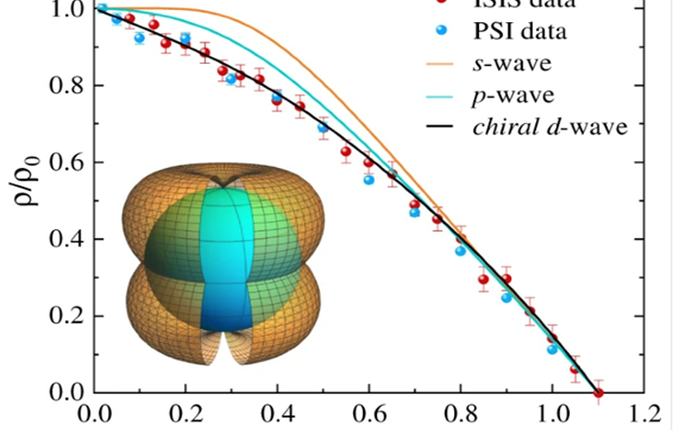Rare superconductor may hold key to the future of quantum computing
University of Kent and the STFC Rutherford Appleton Laboratory researchers have discovered a new rare topological superconductor, LaPt3P, which may be of huge importance to the future operations of quantum computers.
Superconductors conduct electricity without any resistance when cooled below a certain temperature. They manifest quantum properties on the scale of everyday objects, making them highly attractive candidates for building computers based on quantum physics to store data and perform computing operations.
However, qubits are extremely sensitive and lose their quantum properties due to electromagnetic fields, heat and collisions with air molecules. Protecting the qubits can be achieved by creating resilient qubits using topological superconductors that host protected metallic states on their boundaries or surfaces.
Topological superconductors, such as LaPt3P, recently discovered through muon spin relaxation experiments and extensive theoretical analysis, are exceptionally rare and are of tremendous value to the future industry of quantum computing.
Two sets of samples were prepared in the University of Warwick and in ETH Zurich. Muon experiments were then performed in two different types of muon facilities: in the ISIS Pulsed Neutron and Muon Source in the STFC Rutherford Appleton Laboratory and in PSI, Switzerland. The paper ‘Chiral singlet superconductivity in the weakly correlated metal LaPt3P’ is published in Nature Communications.
EEDI
https://www.eurekalert.org/pub_releases/2021-06/uok-ndo061521.php

